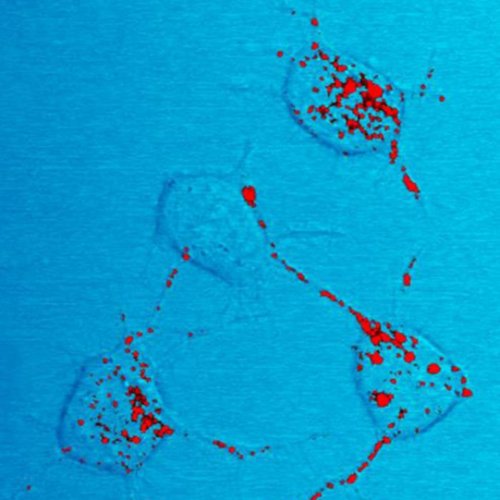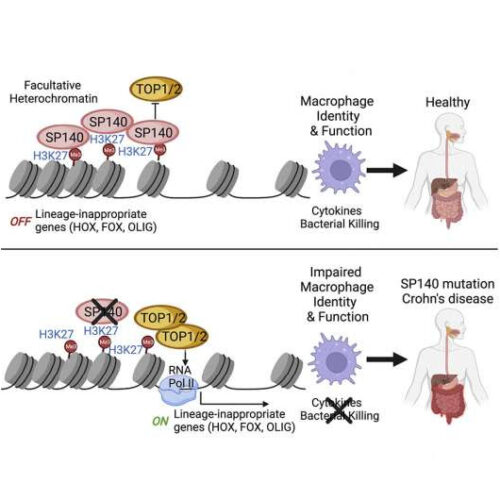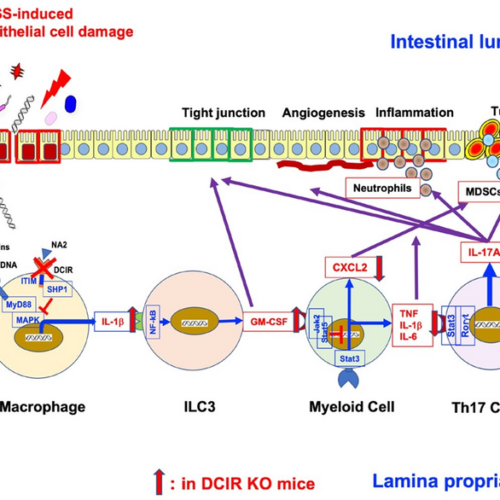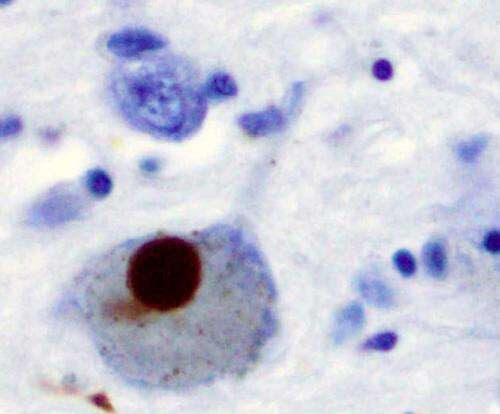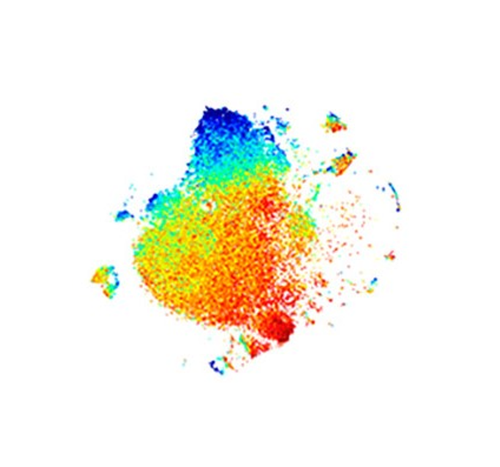SCUOLA INTERNAZIONALE SUPERIORE DI STUDI AVANZATI IMAGE: PRIONS CREDIT: NATIONAL INSTITUTE OF HEALTH: HTTPS://WWW.FLICKR.COM/PHOTOS/NIHGOV/48440889002/IN/PHOTOLIST-NDO19F-2GNYDDQ Prion diseases, such as bovine spongiform encephalopathy (‘mad cow disease’), are lethal neurodegenerative infectious diseases that affect humans and other mammals and for which there is currently no cure. These diseases are caused by the accumulation of prions, which are misfolded versions...
Tag: <span>therapeutic target</span>
New therapeutic target against the most common lung cancer
UNIVERSITY OF BARCELONA IMAGE: FROM LEFT TO RIGHT: MARSELINA ARSHAKYAN, ELBA MARÍN (FRONT), PAULA DUCH, CRISTINA TEIXIDÓ, NOEMÍ REGUART, RAFAEL IKEMORI, JORDI ALCARAZ, MARTA GABASA AND NATALIA DÍAZ. CREDIT: UNIVERSITY OF BARCELONA The TIMP-1 protein levels in both tissues and blood have been repeatedly associated with a poor prognosis in lung cancers, but its role...
New therapeutic target identified for triple-negative breast cancer
by Ananya Sen, University of Illinois at Urbana-Champaign Adam Nelczyk, left, and Erik Nelson have discovered that the nuclear receptor TLX can potentially be used to treat triple-negative breast cancer. Credit: Julia Pollack Adam Nelczyk, left, and Erik Nelson have discovered that the nuclear receptor TLX can potentially be used to treat triple-negative breast cancer....
New insights into the mechanisms behind Crohn’s disease point to potential therapeutic target
by Massachusetts General Hospital Credit: Hajera Amatullah et al, Cell (2022). DOI: 10.1016/j.cell.2022.06.048 The structure of chromatin—the mixture of DNA and proteins that form chromosomes—can affect gene expression, and certain chromatin “readers” are important for monitoring this structure often in response to environmental cues. Mutations within one such reader, called Speckled Protein 140 (SP140), are associated with an...
Scientists uncover new therapeutic target for treating colorectal tumors
TOKYO UNIVERSITY OF SCIENCE IMAGE: A NEW STUDY BY RESEARCHERS FROM JAPAN AND CHINA HAS REVEALED THAT INHIBITING DCIR, A C-TYPE LECTIN RECEPTOR PROTEIN RESPONSIBLE FOR MAINTAINING HOMEOSTASIS IN THE IMMUNE AND BONE SYSTEMS, REDUCES THE SEVERITY OF DSS COLITIS SYMPTOMS AND SUPPRESSES COLORECTAL TUMOR GROWTH. THESE FINDINGS COULD PAVE THE WAY FOR THERAPEUTIC STRATEGIES...
Researchers identify a new candidate therapeutic target for Parkinson’s disease
by Brigham and Women’s Hospital Immunohistochemistry for alpha-synuclein showing positive staining (brown) of an intraneural Lewy-body in the Substantia nigra in Parkinson’s disease. Credit: Wikipedia The human brain is lipid rich. Lipids and fatty acids contribute to many important cellular processes. Alpha-synuclein—a protein that plays a critical role in Parkinson’s disease (PD)—is known to interact...
Study identifies new therapeutic target for most common type of pancreatic cancer
by Melissa Rohman, Northwestern University Mazhar Adli, PhD, associate professor of Obstetrics and Gynecology in the Division of Reproductive Science in Medicine and senior author of the study published in Developmental Cell. Credit: Northwestern University Northwestern Medicine investigators have discovered a potential therapeutic target for the most common type of pancreatic cancer, according to a study published...
The study identifies a therapeutic target for Alzheimer’s disease, revealing strategies for preventing or slowing disease progression
About 11% of the U.S. population 65 and older has been diagnosed with Alzheimer’s disease (AD), the most common form of dementia that results in memory loss and cognitive impairment, according to the Alzheimer’s Association. And the World Health Organization predicts the number of people living with Alzheimer’s will grow by millions each year. Despite...
Newly identified neutrophil subset is a promising therapeutic target
UNIVERSITY OF ILLINOIS CHICAGO IMAGE: INTENSITIES OF PROTEIN EXPRESSION OF MARKERS ARE SHOWN ON VISNE MAP AS SPECTRUM COLORED DOTS, WITH LOW IN BLUE, HIGH IN RED. CREDIT: BACHMAIER, ET AL. ACS NANO Using a protein nanoparticle they designed, scientists at the University of Illinois Chicago have identified two distinct subtypes of neutrophils and found...
Trinity researchers discover new therapeutic target for severe asthma
TRINITY COLLEGE DUBLIN Scientists working in the School of Biochemistry and Immunology at the Trinity Biomedical Sciences Institute (TBSI) have uncovered a new approach for treating severe asthma. They have high hopes their discovery may pave the way for effective new treatments, especially in children. Ireland has one of the highest rates of asthma in...

